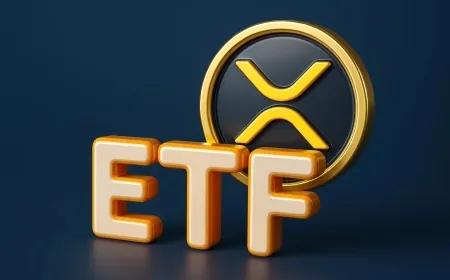IRS and Treasury Enforce Tax Rules on DeFi Platforms, Raising Privacy Concerns
New IRS rules classify DeFi platforms as brokers, requiring KYC and tax reporting. Critics warn of privacy risks and challenges for decentralization.

The U.S. Treasury and IRS have unveiled new tax rules aimed at decentralized finance (DeFi) platforms. These regulations, set to take effect on January 1, 2027, will require DeFi platforms that interact directly with users to follow strict reporting and identity verification procedures.
Under the new guidelines, DeFi platforms are classified as brokers, much like traditional banks and financial institutions. This means they will need to collect personal details such as names, addresses, and transaction records from users and submit them to the IRS using a newly introduced Form 1099-DA.
What the New Rules Mean
The goal of these regulations is to ensure DeFi users comply with tax laws, treating decentralized platforms the same as centralized exchanges for reporting purposes. However, the move has raised serious questions about how these changes will impact the crypto space.
DeFi platforms are known for their decentralized nature, operating without central oversight and often allowing users to remain anonymous. Critics argue that enforcing identity verification (KYC) and detailed reporting could undermine these principles.
Concerns from the Crypto Industry
The new rules have caused an uproar among crypto enthusiasts and industry leaders. Groups like the Blockchain Association and the DeFi Education Fund have expressed concerns over privacy and the potential overreach of regulatory authority.
For many DeFi platforms, complying with these rules could be extremely challenging, especially for those that operate without centralized management. Some fear the regulations could push DeFi innovation out of the United States, as projects relocate to countries with more crypto-friendly policies.
Potential Impact on DeFi
To meet these requirements, DeFi platforms may need to centralize parts of their operations, such as tracking user identities and monitoring transactions for all types of digital assets, including stablecoins and NFTs. This shift could change how DeFi platforms function and may reduce the appeal of decentralized finance for users who value privacy.
These rules could also discourage new startups in the U.S. crypto sector, potentially slowing down the growth and innovation of the industry.
As the January 2027 implementation date approaches, discussions are heating up about how to balance effective regulation with the unique decentralized nature of DeFi. While the IRS aims to improve tax compliance, many worry these measures could hurt the very innovation that makes DeFi special.
Also Read: MicroStrategy and Coinbase Stocks Rise as Bitcoin Momentum Builds in Early 2025
































































